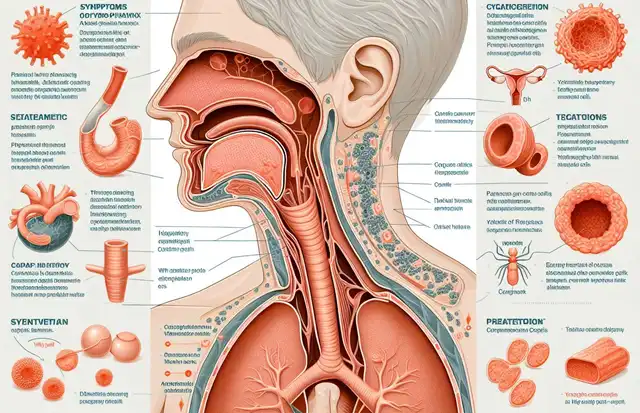Early Detection of Hypopharyngeal Cancer Possible with Saliva Diagnosis
- Normal Liver Cells Found to Promote Cancer Metastasis to the Liver
- Nearly 80% Complete Remission: Breakthrough in ADC Anti-Tumor Treatment
- Vaccination Against Common Diseases May Prevent Dementia!
- New Alzheimer’s Disease (AD) Diagnosis and Staging Criteria
- Breakthrough in Alzheimer’s Disease: New Nasal Spray Halts Cognitive Decline by Targeting Toxic Protein
- Can the Tap Water at the Paris Olympics be Drunk Directly?
Early Detection of Hypopharyngeal Cancer Possible with Saliva Diagnosis
- Should China be held legally responsible for the US’s $18 trillion COVID losses?
- CT Radiation Exposure Linked to Blood Cancer in Children and Adolescents
- FDA has mandated a top-level black box warning for all marketed CAR-T therapies
- Can people with high blood pressure eat peanuts?
- What is the difference between dopamine and dobutamine?
- How long can the patient live after heart stent surgery?
Early Detection of Hypopharyngeal Cancer Possible with Saliva Diagnosis
A research group led by Associate Professor Hideaki Kinugasa at Okayama University has confirmed that it is possible to detect hypopharyngeal cancer, which occurs at the back of the throat, early by simply examining the components of saliva. It has been noted that there has been no effective blood tumor marker for hypopharyngeal cancer, and examinations using endoscopes have been conducted. The application of this technology could lead to the early detection of high-risk patients.
The research findings were published online in the British Journal of Cancer on March 27.

According to the research group, pharyngeal cancer is difficult to detect early, and the proportion of cases where cancer is found to be advanced is high. In particular, hypopharyngeal cancer has a high degree of malignancy, with a five-year survival rate of less than 40% in the advanced stage.
The research group extracted DNA from the saliva of 61 patients undergoing endoscopic treatment for hypopharyngeal cancer at Okayama University Hospital and 51 patients without this cancer, and compared the frequency of “methylation” of genes that affect cancer development.
As a result, methylation was found to be extremely high in patients with hypopharyngeal cancer. Furthermore, when saliva from 26 patients with hypopharyngeal cancer at Hiroshima City Municipal Hospital was examined, high levels of methylation were detected in 22 patients (approximately 85%).
Based on these research results, it is possible to detect cancer early by examining saliva, which allows for local resection and aims for a cure.
Associate Professor Kinugasa expressed hopes, saying, “Endoscopic examination of the throat is painful and requires anesthesia, making it difficult to examine all patients in detail. This method can lead to the early detection and treatment of cancer, greatly contributing to improving the quality of life for patients.”
The research group expects that the commercialization of saliva diagnostics and its application in cancer screening can lead to the development of new medical practices.
Regarding hypopharyngeal cancer, entertainer Eiharu Mie announced in January this year that she had Stage 4 cancer. She temporarily suspended her entertainment activities for treatment and resumed them in April.
Early Detection of Hypopharyngeal Cancer Possible with Saliva Diagnosis
(source:internet, reference only)
Disclaimer of medicaltrend.org
Important Note: The information provided is for informational purposes only and should not be considered as medical advice.



